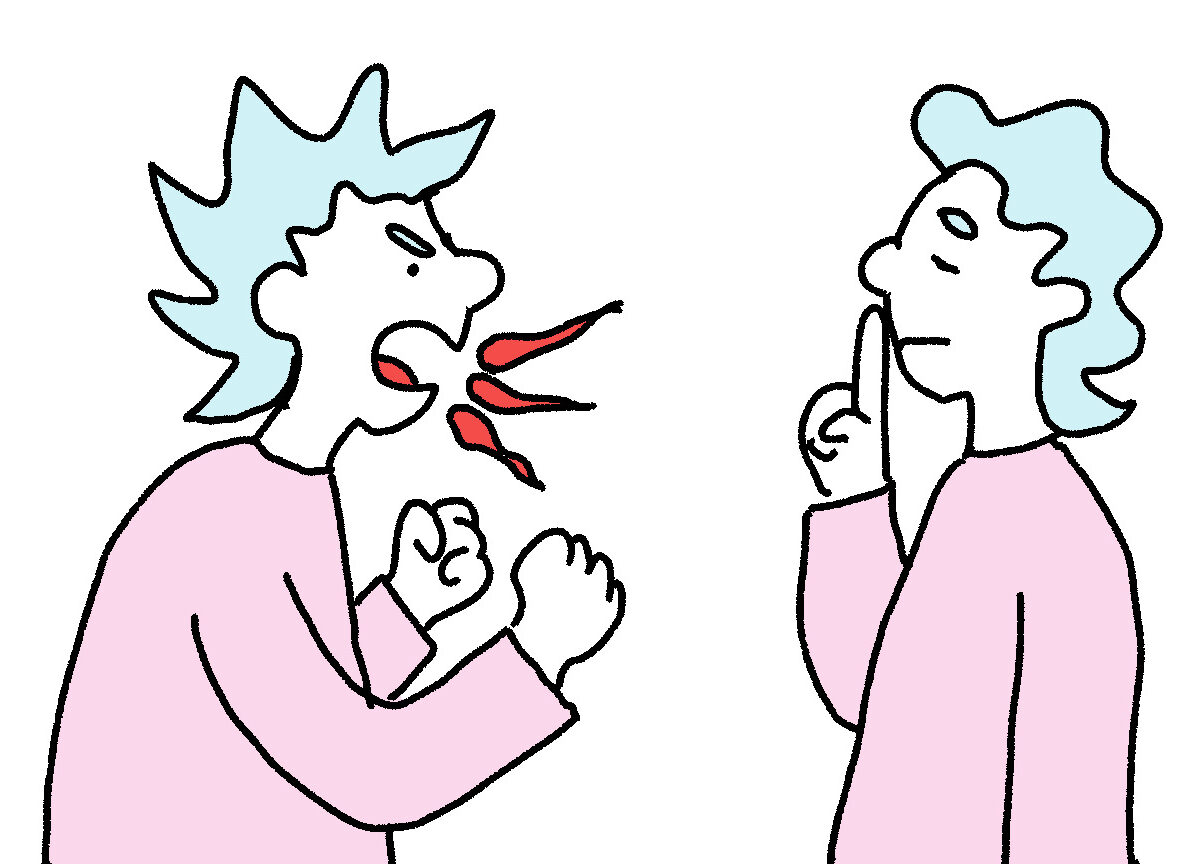(written by Calum Anderson and published on 29th October 2025)
Many of my clients have sat in my office and told me “I’m Not an Angry Person”. For my sensitive, introverted clients with lower self‑esteem, the idea of feeling—even worse showing—anger feels like a nerve-wracking ordeal to be avoided at all costs. In reality, though, it is very difficult to avoid ever feeling angry since life around us seldom supports us in keeping it entirely at bay.

What triggers normal, healthy feelings of anger?
Even if we are not open to acknowledging or welcoming feelings of anger (or their milder siblings and cousins such as annoyance, irritation, frustration, exasperation) we might experience the feeling when a roommate enters our room without knocking on the door or we hear a disparaging comment about a group of people we care about, or through a series of subtle slights that accumulate over time. It may be behind the protection of a screen (the windscreen of a car or the anonymity of an app) that we more easily feel bubbles of rage coming up about other people’s behaviour.
What are the costs of ignoring anger?
If we chronically ignore these signals, we can experience a number of costs. Unprocessed anger, stored in the nervous system, can morph into chronic resentment, anxiety, or depressive symptoms. Muscles may tighten, breathing may become shallow, and stress hormones may remain elevated potentially leading to health issues. We may lose touch with clear internal signals that help us to advocate for ourselves and what is meaningful for us in our lives to protect our dignity. As a result, our sense of positive influence over our lives may be reduced and self-esteem may be damaged. An openness towards these milder signals may prevent a build up that leads to full-blown overwhelming anger and behaviours we may later feel quite ashamed of.
Feeling anger is healthy. Showing anger requires care.
The ability to feel anger is necessary in order to cultivate and maintain healthy relationships. It enables us to notice a voice inside that wants our boundaries to be respected and says, perhaps through a whisper inside our mind or body, “No! Not like that!” Showing anger in a responsible and effect manner requires our self-leadership, though. The emotion is a consultant to support us in expressing ourselves thoughtfully and protecting us from violations from outside. If we are consumed by anger and the emotion is front and centre in leading our behaviour, it may scare people, damage relationships and reduce our interpersonal effectiveness.
How do we learn to fear anger?
My clients who have been trained to prioritise pleasing others over pleasing themselves have usually learned early on in their lives to see their own anger as something selfish, destructive and shameful that needs to be quickly pushed aside. Many clients develop a part in their own psyche early on in their lives, usually during childhood, that automatically neutralises angry feelings. For my clients who encounter anger in their early lives as a powerful external threat—a larger, louder, and sometimes verbally or worse still physically violent presence in their lives, their nervous systems learn to associate anger with danger, prompting them to shrink, hide, or appease in order to keep themselves safe from others’ anger. Over time, an inner “anger‑inhibitor” develops, urging the person to keep their own feelings of anger under wraps to stay acceptable to others and to avoid conflict since conflict from the nervous system’s perspective is associated with fatal threat. This becomes so refined over the course of many years of avoidance of this emotion, that clients can become completely unaware of their angry feelings. Their awareness of the fact that something is wrong may come in the form of anxiety or depression or some physical manifestations of unease. I want to emphasise here that since we are all part of a species that has been around for many thousands of years we are not responsible for the hardware of our nervous systems that responds automatically by learning patterns aimed at helping us survive. Therapy helps us notice where we can begin to perceive some choices in responding to these responses.
An invitation to focus on the history of your relationship with anger
Since you are reading this, I assume that anger has a special meaning for you so I wonder what messages you absorbed about anger in your early life.
Did your early caregivers notice when you were angry? If so, how did they respond?
Did you witness anyone else around you being angry? How was that for you?
What did you learn from this experience about feeling anger?
What did you learn from this experience about expressing anger?
Did you witness a model of healthy anger in your early life?
Did anyone encourage you to express or understand your angry feelings?
Reframing Anger as an Assertiveness Ally
When I think of anger as a bright, red and fiery energy, it brings up the idea that there’s warmth in there. The “No!” it contains to something happening outside, may be a “Yes” to you inside. Its loving purpose is to draw attention to something that matters to you—an unmet need, a violated boundary, or a value that feels threatened. The fire itself isn’t inevitably harmful; it’s the way we respond to it and use it in the world outside that influences the outcome. If the anger is attended to and respected by you in your self-leadership, it can be a friendly energy, an ally that helps you feel clear and grounded.
How can I support you?
I help my clients to explore their inner world with respectful, inquisitive loving kindness so that more peace and harmony emerge without force. I like to encourage my clients to think of their experience with anger in terms of parts. We can think of the signal of anger as a part helping you see information about circumstances that may be bad for you in some way. Then we can get to know the various parts that may stifle the feelings, believing they protect you this way. We might take time to get to know these various parts and energies in whatever way they show themselves (through impulses, internal body experience, imagery, words) and be respectfully curious about them. Most likely they are trying to keep you safe and may be holding onto stories that now limit you. We might experiment with staying with the sensations of anger for longer than real life normally allows so you can find more peace with them and we might strengthen your resilience around expression of anger by role playing such situations, being curious about the resources that can be invited in to help you experience your angry feelings as allies. I aim to patiently support you and help you to decode some of the mysteries of your experiences around anger and become more at peace with your authentic feelings. I want to help you discover how your anger can be an assertiveness ally so your self-confidence and well-being may grow.


